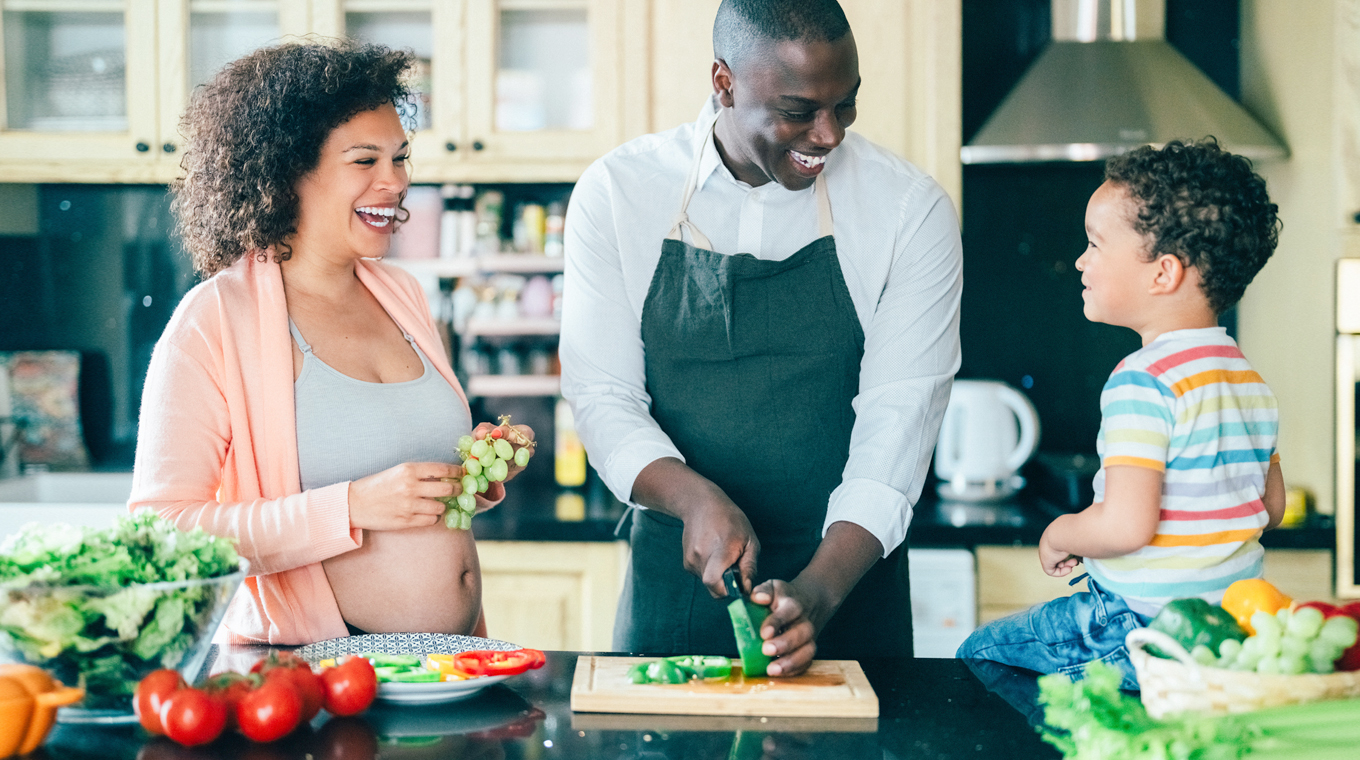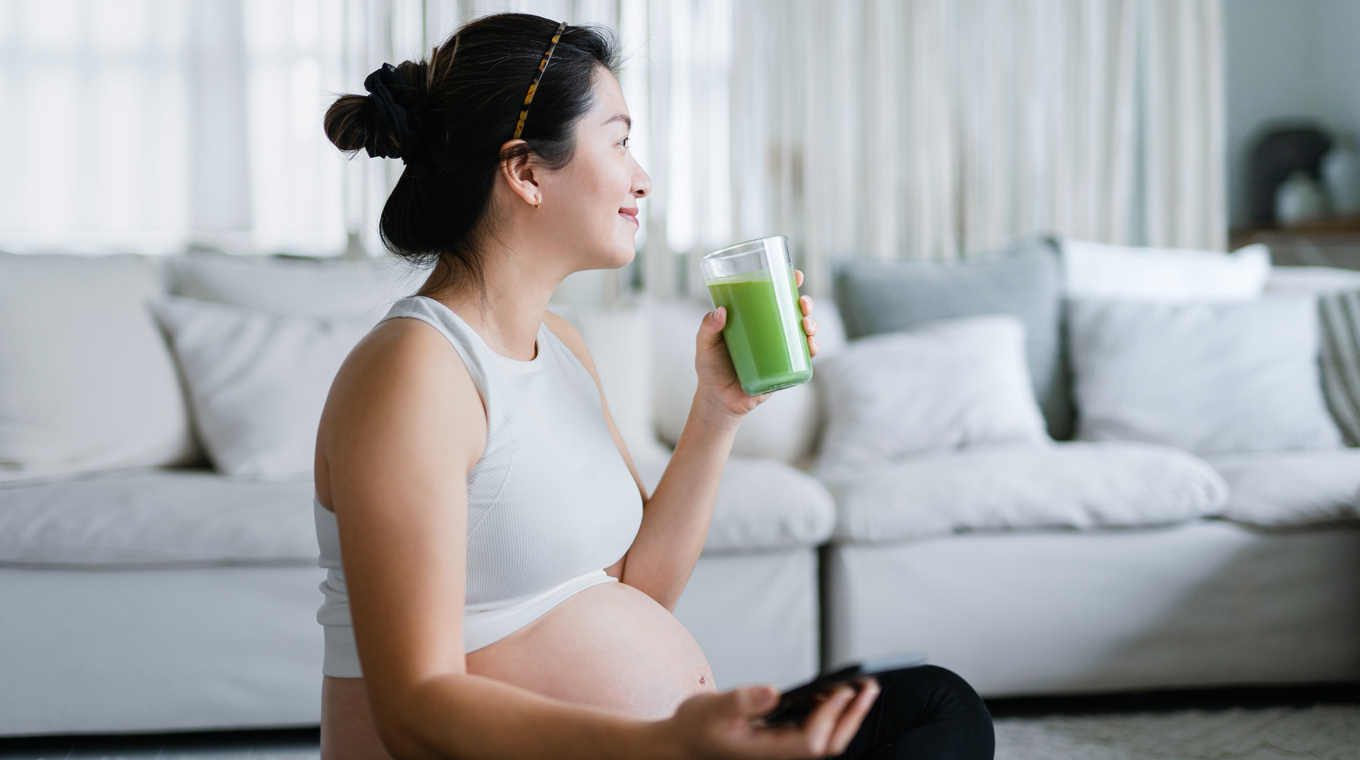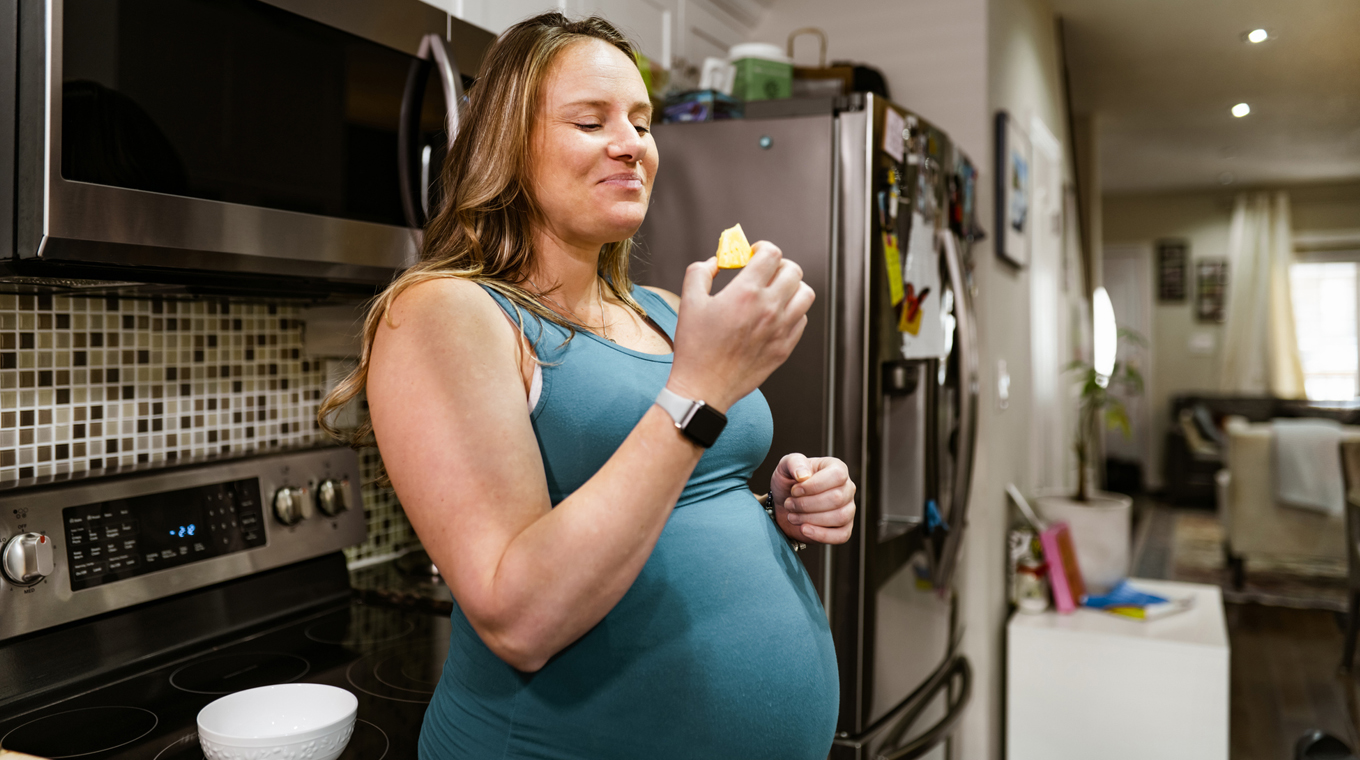In this article
It’s common knowledge that consuming a variety of nutrient-dense foods is vital to a healthy pregnancy and fetal development. Foods high in protein are especially important, as protein has a significant effect on fetal development>; most notably the brain, eyes, and blood. As a result, pregnant people should ensure they’re incorporating high-protein food into their diet. Read on to learn which high-protein foods to eat while pregnant and what foods to avoid during pregnancy.
Best food to eat: Pregnant or TTC

If you're pregnant or trying to conceive, prenatal vitamins should be your first course of action to ensure a healthy start. Opt for a prenatal that contains folic acid, Omega 3 fatty acids, iodine, and calcium but be sure to consult your physician if considering additional supplements. It is quite possible to have too much of a good thing — large amounts of any supplement can be harmful to you and your baby — so a full blood panel can help your healthcare provider determine what's lacking in your diet.
And of course, don't forget your water, staying hydrated can help ease Braxton Hicks contractions and keep you feeling better throughout your pregnancy, overall.
Meat, poultry, and certain types of fish can provide a healthy dose of protein. A 3-ounce serving size of chicken — which is about the size of a deck of cards — offers up a hefty 26 grams of protein, while a 3-ounce service of canned salmon provides nearly 17 grams. However, pregnant people should avoid mackerel, swordfish, and shark, which contain high levels of mercury. Safer high-protein options are salmon, shrimp, and cod.
Dairy products and leafy greens are also protein-rich and should be a regular part of your pregnancy diet. Milk, cheese, and yogurt are good options. Get more bang for your buck by combining the two by creating healthy snacks like this spinach dip from food blogger Amanda of Midwest Nice. It calls for Greek yogurt, which is higher in protein than regular yogurt.
"Up your snacking game with this healthy spinach dip recipe, it's easy to whip up with just a handful of ingredients and swaps out sour cream for healthier Greek yogurt," Amanda wrote on her blog. "Serve with pita chips and fresh veggies for a superb snacking experience."
Plant-based high protein food options

For those who prefer a plant-based diet, there are plenty of high-protein food choices that don't come from animals. For example, quinoa packs 8 grams of protein in a 1-cup serving, and beans and lentils offer nearly 9 grams of protein in just a half-cup serving.
While there are plenty of meat alternatives available for those who opt for vegan or vegetarian diets, they're often highly processed and contain high levels of sodium and preservatives. It's best to opt for whole foods when possible and choose meat alternatives in moderation.
The same holds true when it comes to convenience meals like shakes. To answer the question, "can you have protein powder while pregnant," it all depends on your current nutritional state, so again that prenatal bloodwork from your doctor comes into play. Many protein powders use fillers, preservatives, additives, and artificial sugars, so if you have the time and energy, it's best to make your own.
Mom of two Larisha Bernard who, along with her husband, Andrew, runs the blog, Make it Dairy Free. On it they share delicious plant-based and vegan recipes like this high-protein vegan peanut butter strawberry banana smoothie that uses zero protein powder.
"Getting enough protein in your smoothies means that you will feel less tired and worn out while helping your body build and repair itself," Bernard writes. "The nutrients from things like strawberries, bananas, and hemp seeds, provide you with vitamins and minerals to get you going throughout the day."
Other plant-based high-protein foods include tofu and edamame, which provide nearly 10 grams of protein per half-cup serving. Andrew Bernard shared this amazing copycat Chick-fil-a vegan chicken that transforms a block of tofu into a chicken alternative that truly tastes like the real thing!
Are there any protein-rich foods not to eat while pregnant?

Regardless of their protein content, there are some foods that should be avoided when pregnant, like raw or undercooked meats, and leafy greens that are not thoroughly washed. Hot dogs, lunch meat, and unpasteurized dairy should also be avoided as each of these could harbor harmful bacteria that could cause listeriosis, e-Coli, or toxoplasmosis. The Food and Drug Administration (FDA) advises pregnant people to be mindful of these bacteria and if they do opt for foods like hot dogs and lunch meat, they should be cooked until steaming hot throughout.
It's also advised that pregnant people limit sugary foods — so don't get all of your protein from peanut butter cups or ice cream. But Christine Naze, a registered dietician at Oregon Health & Science University (OHSU), has some advice for those with a sweet tooth.
"At the end of the day, don’t sweat the sweets," Naze told OHSU News.
"It’s OK to enjoy calorie-rich foods in moderation, particularly during special occasions and holidays. Just work to balance your indulgences with physical activity such as a post-feast walk," the clinical dietitian advised. "Then, develop a plan to return to healthy habits as soon as possible in order to optimize the immediate and long-term health of you and your growing family.”





